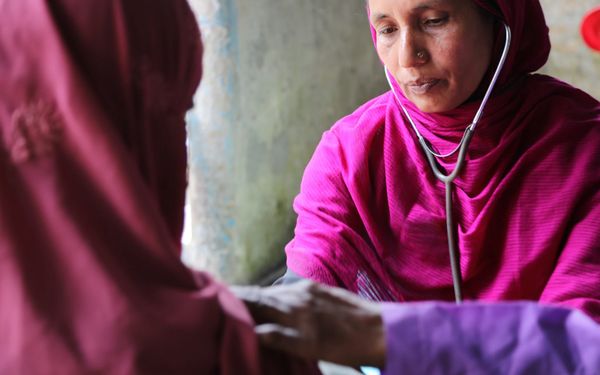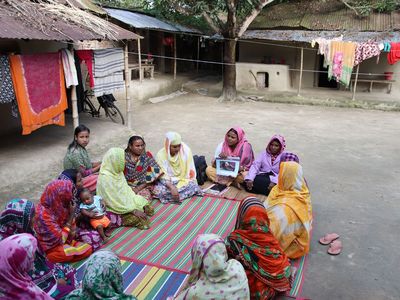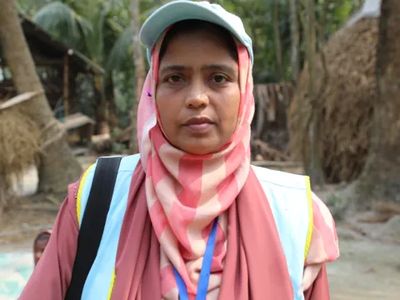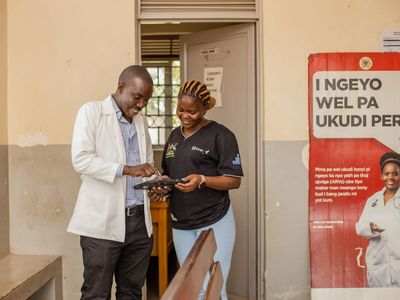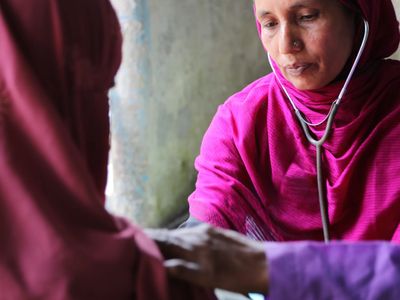Bringing health and hope to the last mile
More than half the world’s population lack full access to essential health services, and one in four people across the world are deprived of safe drinking water. BRAC’s model of community-driven healthcare brings health services and information directly to the doorsteps of people living in poverty. Our work in water, sanitation and hygiene uses community ownership and entrepreneurship to bring services to people at scale.
Women leading community health
Across Africa and Asia, women are trained and supervised to be community health workers in their own communities. They travel door to door to reach people who cannot access formal doctors or hospitals. These health workers provide basic preventative and curative care, diagnosing and referring patients with complications. Their focus includes maternal and child health, family planning, nutrition promotion, malaria prevention, tuberculosis treatment, and the prevention of non-communicable diseases.
Our network of community health workers is supported by specialists, including paramedics, midwives and doctors, as well as a range of facilities such as maternity clinics and prosthetic centers. This comprehensive approach ensures that essential health services are accessible to those who need them most.
Our impact
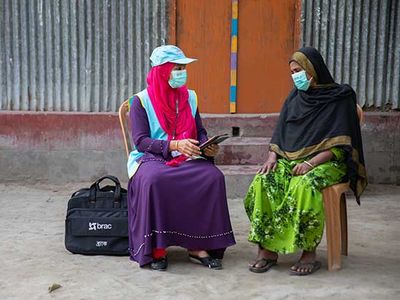
13 million
people accessed healthcare services across Asia and Africa
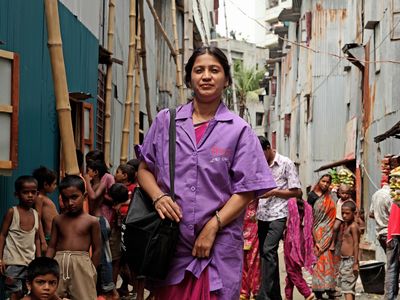
100,000
community health workers taking primary health care to the last mile
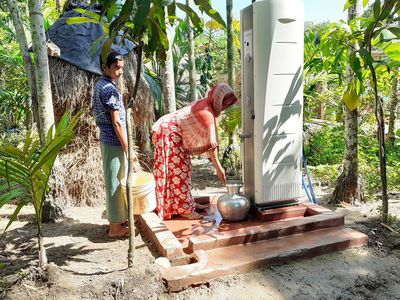
932,000
people equipped with access to safely managed water, sanitation and hygiene facilities in 2024
Research shows that 70% of deaths in Bangladesh are caused by such non-communicable diseases. Yet most of the people don't even know whether they have them. By the time they do, it's often too late.”
Asif Saleh
Executive Director, BRAC
